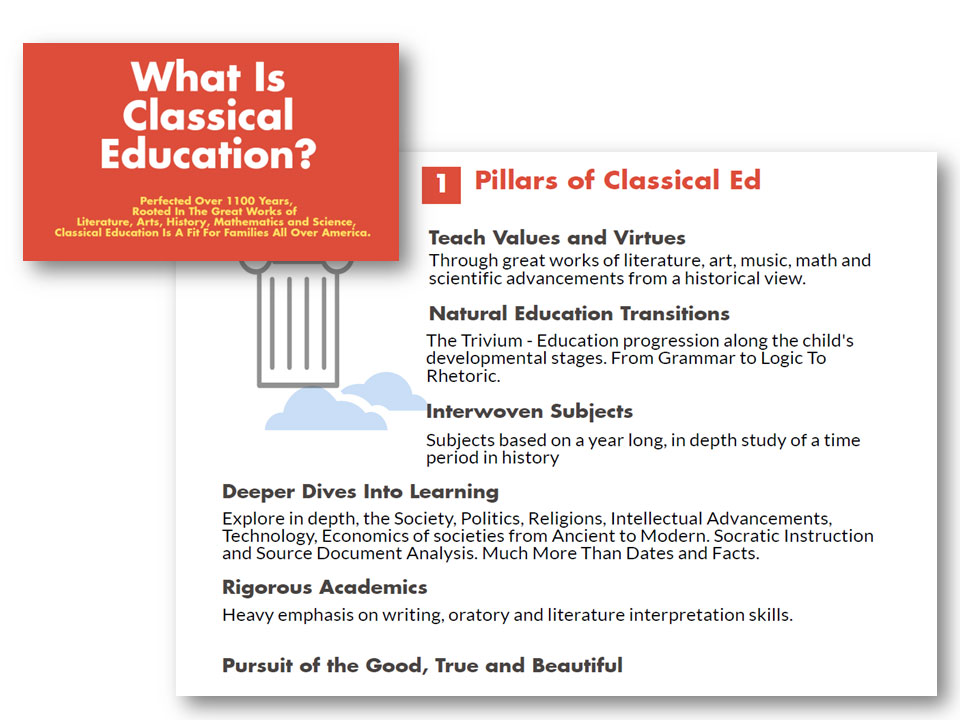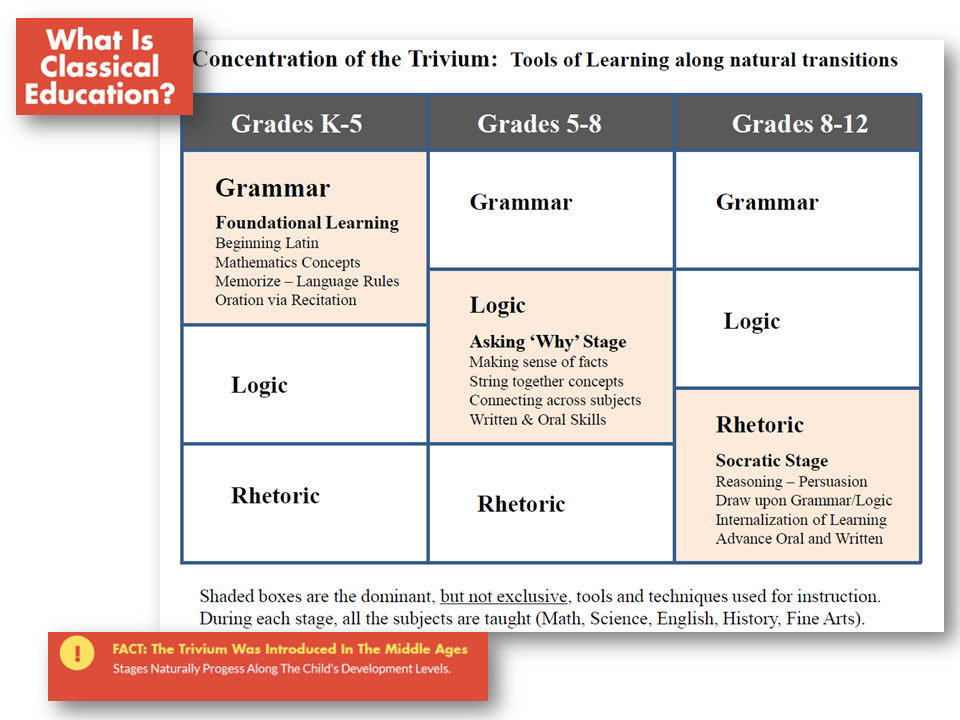Perfected over 2,400 years, rooted in the greatest works of literature, arts, history, mathematics and science, Classical Education is a fit for families all over America.
With its roots tracing back to the teachings of Plato and Aristotle, Classical Education unites scholars and teachers in their shared humanness, in pursuit of The Good, True and Beautiful.
Since its inception in ancient Greece, the goals are still the same;
- Expose scholars to age-appropriate facts, ideas, and skills along with a very strategic learning framework.
- Teach a wide range of ideas from sciences, mathematics, arts and literature
- Learn through deep, rich stories to help a student live through the successes or mistakes found in classical works of literature.
From ancient times, one of the primary goals for education was to teach a student how to teach himself. The simple idea behind this was that if we train a student in the skills of learning, then he will continue to learn on his own for the remainder of his life.
From ancient times, one of the primary goals for education was to teach a student how to teach himself. The simple idea behind this was that if we train a student in the skills of learning, then he/she will continue to learn on their own for the remainder of his life.
The ancients classified the basic skills for learning under three learning bands: Grammar, Logic, and Rhetoric. Once a student became traversed through each stage, they would be considered proficient both academically and emotionally.
The Trivium also serves as a model for how children develop. Children go through several stages of learning, and what we teach them and how we teach them should correspond to their stage of development.
- Early Grammar Stage
Before age ten, children are blossoming in their awareness of the world. They are largely learning the language, building their vocabulary, filling up their basic knowledge using memorization, and exposure to facts.
- Later Grammar Stage
At about age ten, the light bulb goes on, and the child develops the capacity for more abstract thinking. Right about when they start asking ‘why’, scholars are able to draw upon facts to start making sense of their world. In this stage, scholars can handle abstract more mathematical concepts. They learn their language conventions and can apply what they have learned in written and oral communications.
- Logic Stage
From ages of about twelve through fifteen, young adults are in the Logic Stage. They begin to develop their reasoning skills. They can better handle Algebra and Geometry. Theories and ideas begin to interconnect in new and powerful ways. Bigger questions and issues are thought about. They are able to take the foundational facts and apply them in new and creative ways.
- Rhetoric Stage
From ages sixteen through eighteen, these older youths are in the Rhetoric Stage. They begin to develop their skills in communication and application. The Rhetoric stage borrows upon Aristotle’s art of Rhetoric where oral and written communications take on a higher meaning. They learn the art of persuasion and the importance of ethics in their ideas. Scholars want to creatively and effectively express what they have learned and to put their own ideas into practice.
What is the Trivium?
The Latin word Trivium means "where three roads meet." All education, up until this century, was structured around these three roads of learning. The ancients called them Grammar, Logic, and Rhetoric
A Classical Education is layered with example after example of learning right from wrong and what it means to be a complete human. Through understanding of history, exposure to the great works of art and music, mastery of languages and an emersion into powerful, the scholar learns about consequences and the importance of a strong character. From Aristotle’s Golden Mean to Ben Franklin’s 13 Virtues, a Classical Education focuses on academic rigor but not as the end goal. Classical Education is a lifelong focus on character formation and a deep appreciation for the Good, True and Beautiful.

